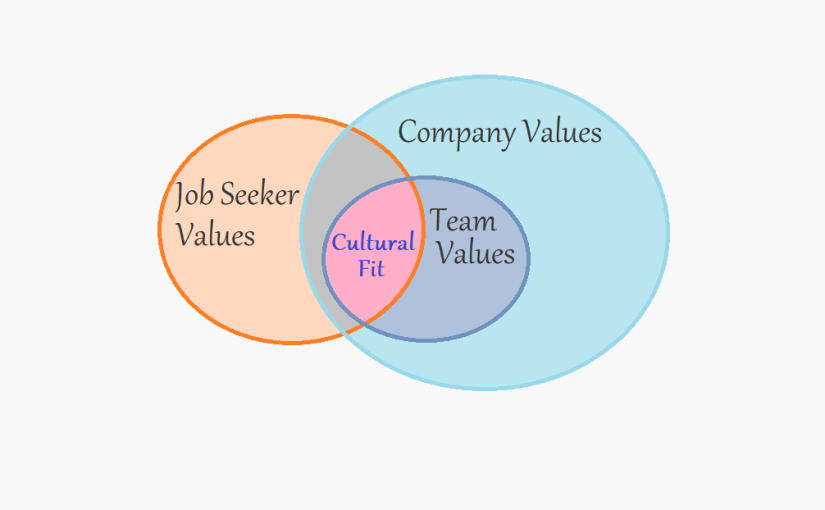I’ve been interviewing lately job seekers and recruiters alike, asking questions about the hiring process. Next I want to outline my findings on the topic of Cultural Fit when it comes to hiring people who are not for leadership positions.
First: what is cultural fit? To keep it super short – it is that sweet spot where your personal values fit/go together with the team values you will be working in. Some example of such values:
- Personal value: I like to work goal oriented -> team value: we do not micromanage
- Personal value: I like team work -> team value: we work collaboratively and like when people giving input
- Personal value: I like to learn new things -> team value: learning on the job is expected
To exemplify the hiring process structure of a company, from my job seeker perspective, I super simplified structure is:
- post job position
- scan of received CVs
- interview process
- hiring offer
So where, in the above mentioned parts, does the company check the cultural fit?
From what I discovered, usually the earliest, cultural fit is checked at the (drum roll) – interview process –
So why is this important for you to know and be aware of?
- Your SKILLS that you put on the CV are the ones that get you in the door and ONLY those! If there is an automatic process that scans the CVs, the personality is out the window. If a headhunter is handling your job offers, usually only the experienced head hunters (mostly hiring for high level positions) ALSO consider cultural fit.
- Your CV structure and the way you write talk about your cultural fit as well. These aspects are 100% checked by every hiring decision maker (once you manage to get them to see it). Typos show you do not care enough about the company.
- If anyone uses your picture, or name, or age, or any other such personal information on your CV to check cultural fit -> alert alert you are dealing with unconscious bias, privilege to the point of discrimination. They definitely are doing it WRONG!
- The company will ask you so called usual questions like: what is your perfect work environment? I mean I get it BUT can we agree that THESE types of questions are just plain BORING and maybe a more natural flowing conversation is more in the CULTURAL ADD trend? I mean, I personally make a difference between a good recruiting experience and a BAD one based on such questions!
- It is mega important that at the interview process you ask YOUR questions to check YOUR cultural fit expectations. And it is ok to ask:
- Can I talk to an employee that does/has/is in your company? (especially if the people in the interview are not representative enough for you)
- Do you offer shadowing for this role?
- Is this a culture in which I can be flexible/mentored/informal/silly/funny/tattooed/be sometimes late to work/work in a quite place/wear only black/take unpaid leave/have pink hair/sporty/not drinking alcohol and so on…
- Side note: maybe recruiters can even give the interviewee a list of such questions as preparation, so that I know it is ok to ask and I will not be judged or disqualified because of them! (I admit I do not ask candidly all of them because I fear I will be met with a “what you are late to work?” look. Taking about bringing my authentic self to work when I cannot even do that in the interview lol)
And for the go I want to leave you with a quote:
If someone is incompetent it is OK but
if someone is incompatible it is a disaster.



